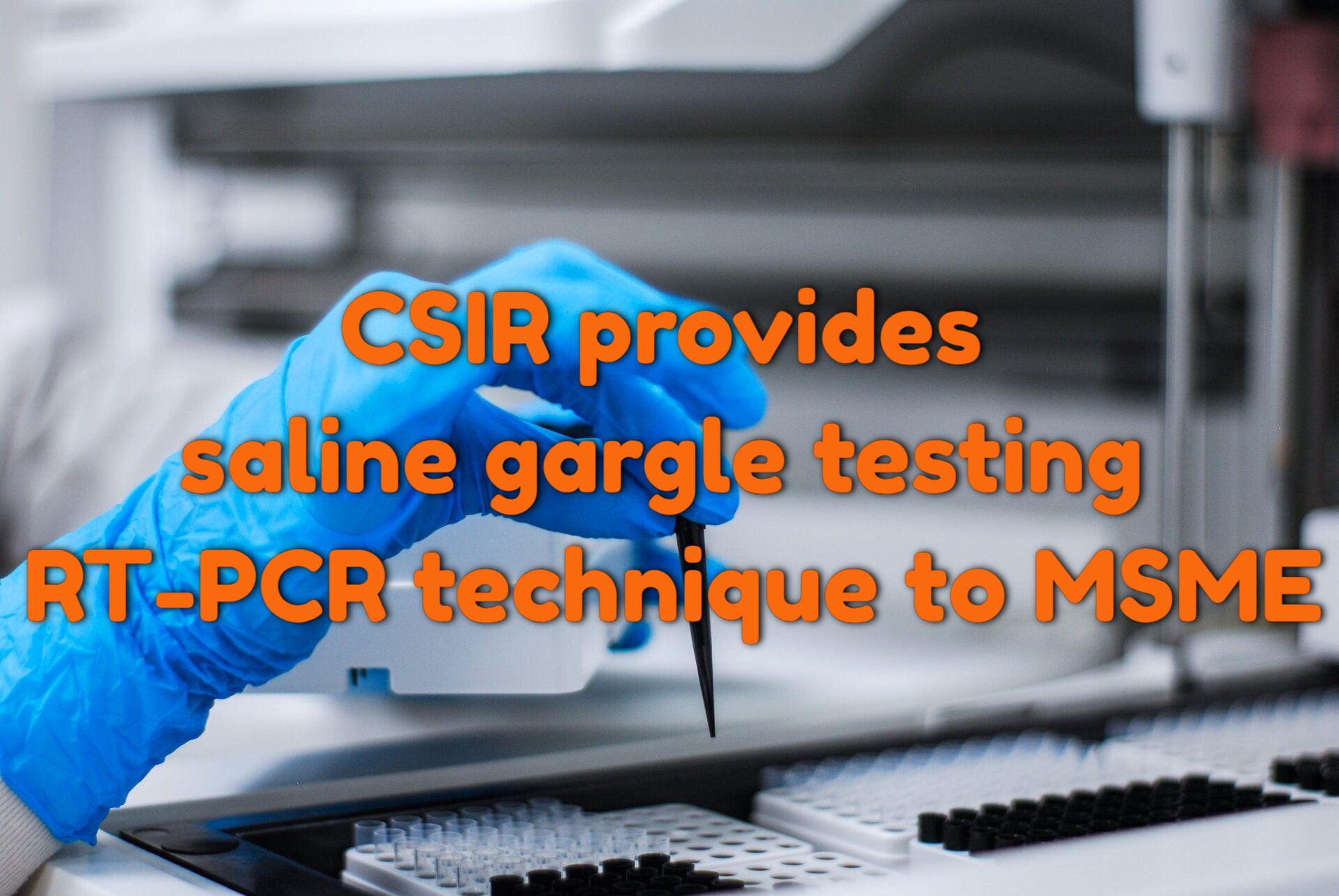The technology has been passed to the Ministry of Micro, Small, and Medium Enterprises of the Union. It’s supposed to be straightforward, cost-effective, patient-friendly, and relaxing. Because of the Pandemic and the possibility of a third wave of Covid-19, the transmission was rushed. People can self-sample their own samples for testing using the nasal gargle RT-PCR procedure. A simple collection tube is utilized, which is filled with a saline solution and then washed with water. The sampling is done in real time, and the results are available in three hours.
Key Highlights
- The technology has been passed to the Ministry of Micro, Small, and Medium Enterprises of the Union.
- It’s supposed to be straightforward, cost-effective, patient-friendly, and relaxing.
- People can self-sample their own samples for testing using the nasal gargle RT-PCR procedure.
- A simple collection tube is utilized, which is filled with a saline solution and then washed with water.
- The sampling is done in real time, and the results are available in three hours..
- Because of the Pandemic and the possibility of a third wave of Covid-19, the transmission was rushed.
- Experts have praised the development, but are concerned that self-sampling will be difficult to supervise.
The government announced on Sunday that the Council of Scientific and Industrial Research (CSIR) has transferred the technology of the indigenously developed saline gargle reverse transcript polymerase chain reaction (RT-PCR) technique for testing Covid-19 samples to the National Environmental Engineering Research Institute (NEERI) in Nagpur.
The technology, which gives rapid test results and is well-suited for rural areas with limited connectivity due to its low infrastructure requirements, has been passed to the Union Ministry of Micro, Small and Medium Enterprises (MSME). It’s supposed to be straightforward, cost-effective, patient-friendly, and relaxing.
“…the institute’s invention has been ‘committed to the nation’ in order to benefit society. On a non-exclusive basis, the know-how has been given to the Union Ministry of Micro, Small and Medium Enterprises (MSME). This would allow the idea to be marketed and licensed to all interested parties, including the private sector, the government, and various rural development programs and departments,” according to a statement released by the Indian government’s Press Information Bureau (PIB).
The licensees are required to establish up manufacturing facilities for commercial production in the form of compact, easy-to-use kits as part of the knowledge transfer agreement.
According to the PIB announcement, the technology transfer was accelerated due to the pandemic and the possibility of a third wave of Covid-19.
NEERI scientist Dr Krishna Khairnar and a team of environmental virology research scholars at CSIR-NEERI, Nagpur, are the primary inventors.
The government declared in May that this technology would be developed, which was also approved by the Indian Council of Medical Research (ICMR).
“Collecting swabs takes time. Furthermore, because it is intrusive, patients may find it unpleasant. Transporting a sample from the collection center to the laboratory takes time as well. The saline gargle RT-PCR approach is quick, easy, and convenient for patients. In May, Khairnar stated, “Sampling is done instantly, and findings are generated within three hours.”
The approach is non-invasive and simple enough that a patient can collect a sample for testing on his or her own. A saline solution is utilized in a simple collection tube. The patient gargles and rinses the solution inside the tube. The sample is subsequently transported to a laboratory and stored at room temperature in a NEERI-prepared buffer solution. When this solution is heated, an RNA template is formed, which is then processed for the RT-PCR test.
“By collecting and processing the sample in this manner, we are able to avoid the otherwise costly infrastructure required of RNA extraction. Self-sampling is possible with this technology, so people can test themselves. The process is also environmentally benign, as trash generation is reduced,” Khairnar had stated.
The team is optimistic that this novel testing will be especially valuable to persons living in difficult-to-reach places.
Experts have praised the development, but they are concerned that self-sampling will be difficult to supervise.
“We don’t know what the sensitivity levels of this technology will be, but we know that when we combine nose and oral samples, we achieve sensitivity levels of close to 70%. When people are responsible for delivering test samples, a lot will depend on their conscience. “It can be difficult to monitor if the sampling is done according to the rules,” said Dr Navin Dang, founder and chairman of Dr Dangs Lab, which was one of the first laboratories in the country to be approved for Covid-19 testing last year.
It’s my pleasure to share that we have acquired a pathbreaking technology of Saline Gargle RT-PCR testing developed by @CSIR_NEERI
— Aditya Rajesh Daga (@adidaga) September 11, 2021
This was transferred to us in presence of Hon. Min. Shri @nitin_gadkari ji.
We shall strive hard in our endeavor to fight #COVID19. @PSIAmravati pic.twitter.com/58N4UHuBEK




